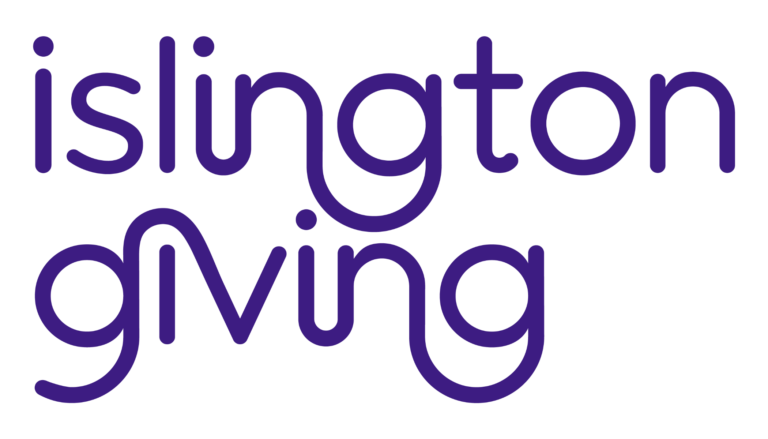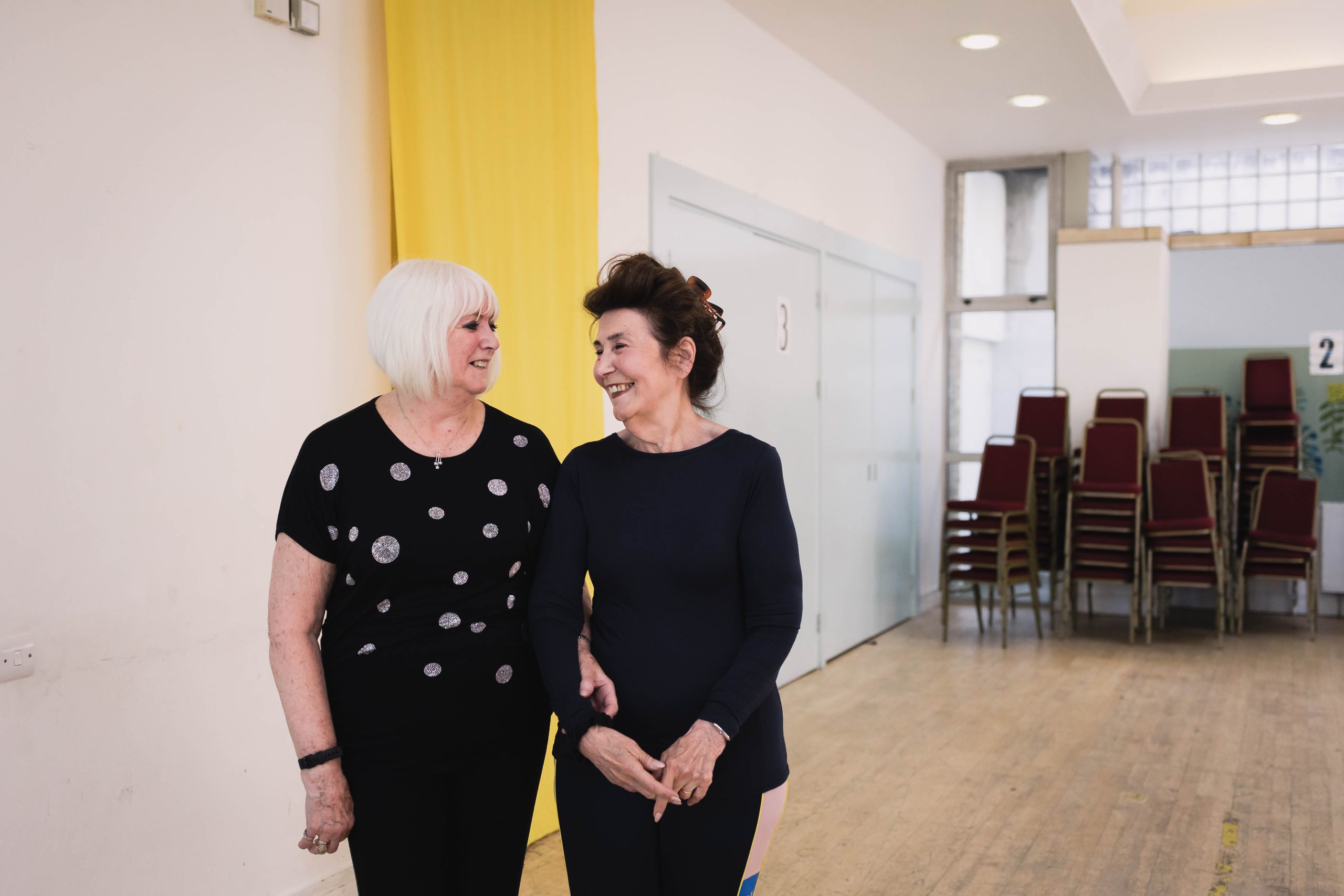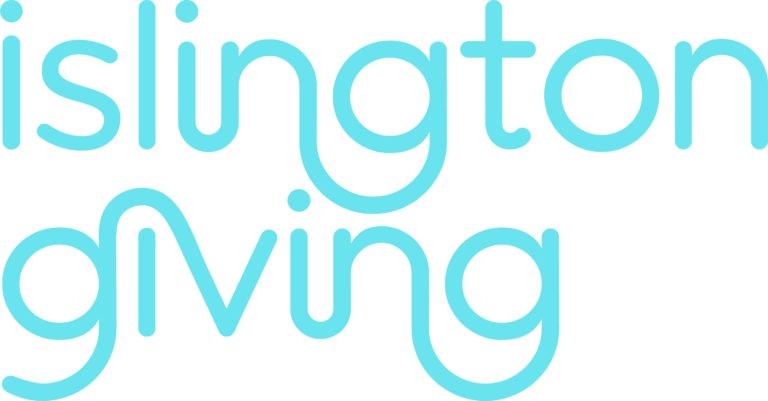This Small Charity Week, we caught up with Kyri Chrisostomou, Programme Manager at Claremont Project, an Arts and wellbeing centre for older adults aged 55+, in Angel, Islington. Discover how Claremont is making a profound impact on the community from their range of classes, social prescribing services, as well as the challenges they face as a small charity, and how we can offer more support.
Tell us a bit about your charity, your role and your key services?
Claremont is an Arts and wellbeing centre for older adults aged 55+, in Angel, Islington, London. We provide a wide range of weekly, affordable classes across the artistic disciplines that could be categorized under visual arts, music, writing, dance, physical fitness and wellbeing. We also hold monthly masterclasses and many special events and projects. We often work in partnership with hyperlocal organisations as well as some of London’s leading arts and cultural institutions such as Sadlers Wells, The British Museum and London Symphony Orchestra to name a few. We operate a Social Prescribing service, plus low-cost psychotherapy for local residents. Our hall spaces and therapy rooms are also available to hire.
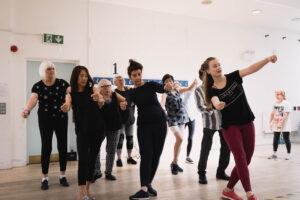 How does your charity address the unique needs of the Islington community?
How does your charity address the unique needs of the Islington community?
Islington is very diverse in terms of socio-economic status, ethnicity and cultural identity.
Our membership is very reflective of that and I think that’s partly down to the wide range of activity we offer which we try to make as culturally appropriate and accessible as possible.
The social, holistic, mental and physical wellbeing benefits of what we offer can really help older adults to live happier, healthier, more connected lives for longer. These preventative measures can help to reduce some of the pressure and demand on local health and social care providers.
“The social, holistic, mental and physical wellbeing benefits of what we offer can really help older adults to live happier, healthier, more connected lives for longer.”
What are some of the biggest challenges you face as a small charity?
Increased costs for older people means we’re working with many more people who are struggling with their heating and food bills. At times, some have come to us just to sit in a warm environment and enjoy our free teas, coffees, and biscuits. All of our costs have gone up considerably (energy, staffing and supplies).
The pandemic has had lasting impacts on isolated older people, many of whom went through the pandemic alone. The starting point in terms of mental health for people when they join us is much lower for many people than it used to be. There is much more of a need for connection, friendship, and visibility and this all puts pressure on staff and costs.
“Where small charities like us differ is that we’re able to be more relational, more person-centred, and build more meaningful and lasting relationships with our members. At Claremont, we provide a very personalised, face to face experience, which you can’t always get through larger organisations or government services.”
Can you share a recent success story?
I’m happy to say there are so many, some big and shiny and others less obvious.
Recently, a group of our Claremonteers performed their original music orchestrated by the entire London Symphony Orchestra (LSO) on the main stage of the Barbican, which was an amazing experience. The LSO project really lifted spirits and provided an enjoyable, cathartic, creative outlet. It also provided a real sense of achievement, increased confidence and joy.
Then there’s the less obvious, internal and confidential impact of our work. For example, a member who has come to us via our Social Prescription service may be experiencing very difficult personal circumstances. They then come to one of our events, which feels safe and manageable. That could be the first time they’ve left their home or socialised in a considerable amount of time. Or a member with higher mental health needs may become very engaged in a particular artistic project, which they find very beneficial.
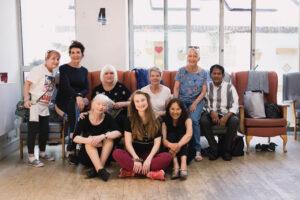 What role do small charities like yours play in filling the gaps left by larger organisations or services?
What role do small charities like yours play in filling the gaps left by larger organisations or services?
Where small charities like us differ is that we’re able to be more relational, more person-centred, and build more meaningful and lasting relationships with our members. At Claremont, we provide a very personalised, face to face experience, which you can’t always get through larger organisations or government services.
We call those who attend Claremont ‘members’ not ‘participants’ or ‘beneficeries’, and that translates into how they feel about us and towards us. It’s the relational approach we take that makes all the difference, making sure people know they matter and building quality relationships.
“It’s often the smaller charities that are delivering on-the-ground services that actually deliver good, meaningful outcomes for people.”
How do funding challenges and rising costs affect your ability to deliver services?
Salaries everywhere have gone up, making it hard to build staff levels to meet needs. Success for charities like ours is partly measured by how many people we’re serving and how well we’re addressing their needs. But the more “customers” we have, the higher our costs, and there’s no corresponding increase in income. We are now looking to rebuild our volunteer and intern programme to help us meet the increasing needs of people in the borough.
What message would you like to share with potential donors and volunteers about the importance of supporting small charities like yours?
It’s often the smaller charities that are delivering on-the-ground services that actually deliver good, meaningful outcomes for people. The big outfits often end up focussing on influencing policy, which is important and still needs to happen but it’s a different kind of work. Supporting the big charities rarely trickles down to the kind of work that we, and other smaller charities in Islington, do. So every donation really does make a real difference!
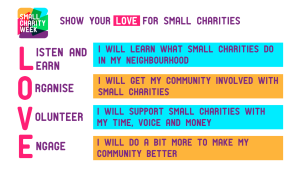 Small charities, big impact
Small charities, big impact
This Small Charity Week, Islington Giving and our parent charity Cripplegate Foundation, will be sharing stories of the incredible small charities we work with in Islington. We invite you to get involved and show your love for small charities this week and beyond.
Here are 3 simple actions you can take:
1. Join us and/or share this story on LinkedIn – use #LoveYourSmallCharity and #SmallCharityWeek so we can find you!
2. Sign up to our e-newsletter for the latest opportunities, events and stories
3. Volunteer, donate or fundraise to support your local community
